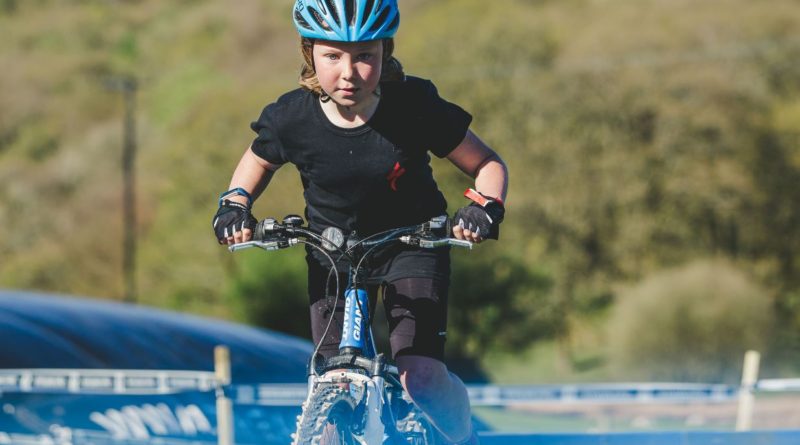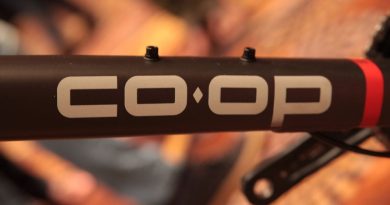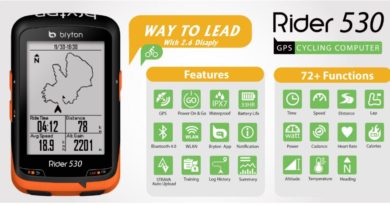Ask the trade: How important is an ‘experience’ as part of a sale?
Recently CI.N asked a panel of retailers whether teaching mechanic’s skills session in store is a wise move. Whether you tended to agree or not, it’s often said an ‘experience’ as part of a sale is a very modern trend at retail. Our panel gives us their views on demos and non-traditional revenue streams….

In store events are very often seen as a means to build store loyalty – do you host any and if so, what’s the long-term benefit?
Mark Almond, Revo Bikes
Given our shop is at a bike park that, in non-Covid times, is open three days per week and we have very little local market, our clientele is brought in to us from all over the UK. This makes in store events very difficult to plan and, indeed, see long-term benefit from.
However, I have worked on such events for a few stores wearing my other hat as a marketer in the past and they can indeed create loyalty. My firm belief is that they offer the customer a VIP experience (when done right) and a level of one-to-one education, interaction and demo that your online competitors simply cannot. The events have to be planned fully though to avoid it being perceived as ‘just an attempt to get us to spend money’.
Daniel Fox, Brampton Valley Cycles
As an aside to the aforementioned maintenance courses I am intending to run some shoes fitting events and seminars later in the year.
Chris Cahill, Blood Sweat and Gears
As a one man operation after a week of doing repairs, serving customers, ordering and book keeping I don’t have the energy or enthusiasm for in store events. Also, my compact shop doesn’t lend itself to events. On the plus side my overheads are kept to a minimum.
Are you re-allocating any shop floor space for non-traditional revenue streams and if so, what’s the nature of the off shoot?
Mark Almond, Revo Bikes
In the past we have partnered with small online brands who are seeking a way of talking directly to the very targeted MTB audience that we provide. This is something we will look to increase going forward. I know that may make me very unpopular, but with no local market and a very targeted clientele from across the UK, we have to be open to working with well-known brands, including the online ones.
We have also partnered with rider training companies – both for skills and strength – as our market has a high racer percentage, so it’s an ideal crossover. As a destination we have also worked with local tourist attractions, B&Bs and much more to offer complete weekends away for the rider and the family.
We are very far removed from a high street store, so I am very aware this won’t be applicable to many. In essence, it is about knowing your market and knowing what they want. For example, being a VW van lover I noticed that, like many trail centres, the car park was full of Transporter vans. Shiny ones at that.
So I added a small line of car wax and polish. It sold out in one weekend.
I also noticed that many riders have 4x4s, so we partnered a roof rack company that made tailored racks for 4x4s. Whatever your market, there will be other interests outside of bikes that you will find crossover easily to your store.
Daniel Fox, Brampton Valley Cycles
We are just about to move to a bigger premises and will be allocating space to a cycling wellbeing studio. We intend to run pilates, and yoga classes, as well as a WattBike studio. So, not only will customers have a chance to get their bike fixed, but also themselves. We also aim to run coaching and fitness testing as well. It is hoped that this will generate increased income due to the increased footfall into the shop.
Chris Cahill, Blood Sweat and Gears
Not at the moment, but I have considered doing so. I was recently approached by a collectibles/model company, but I didn’t feel it was the right thing for me. Electric scooters are a strong possibility though once the government sorts out the legalities.
Customers in other retail segments are increasingly said to be seeking an experience alongside their purchase (and will pay a premium, if happy) – do you think that school of thought has reached the bike trade yet?
Mark Almond, Revo Bikes
Not fully, but I wish it had. Bike purchases – particularly of high-end bikes – are primed for an experience-led sale. We have worked with brands that offer experience centres and they are extremely effective in converting customers to their product. There is absolutely no reason why bike shops cannot easily do this too. Immerse the customer in the bike, give them a ‘pro for a day’ experience on their demo ride. Partner local restaurants and hotels if you are at a destination. Make a bike fit part of this and so on.
I often hear that online sellers and brands are making stores’ lives difficult with pricing – which as competition is true, of course – but why not fight back with the very thing the online brands cannot easily offer – the VIP experience. If your market is not solely price driven and you believe that a small premium would be considered favourably, try it. The customer will remember the experience long after the new bike day excitement fades and is more likely to come back to you when they want to spend again.
Chris Cahill, Blood Sweat and Gears
In some areas, maybe. For instance, where a shop has a local trail centre they may offer MTB tuition, or lead rides.
Daniel Fox, Brampton Valley Cycles
I don’t think this train of thought has reached the bike industry, yet. I believe that people not only look for an experience as such, but are also more likely to buy items if you explain and demonstrate what advantages they will gain. For instance, shoe fitting; if you can back the product up with what benefits it will produce and show them they are more likely to buy.
How much time (and money) do you invest into various mechanic/sales training and non-core skills such as bike fitting knowledge?
Chris Cahill, Blood Sweat and Gears
When I bought my business six years ago I spent a few months learning to wheel build and getting used to modern bike standards as I had spent a few years away from cycling. I then put myself in for the Cytech Two assessment and passed with flying colours. I also do the Bosch e-Bike training every Two years.
I intend to get training on other brands too, but I am avoiding Cytech now due to the high cost (over £800). I would never make it back. I should probably get some sales training as I am the first to admit I am not a salesperson, but cost vs ever-decreasing bike sales does not add up.
Daniel Fox, Brampton Valley Cycles
I tend to invest quite a lot of time and money attending training events to gain the latest information and accreditation.
How important are demo bikes to the sale process nowadays and what efforts do you go to to make first impressions a success?
Mark Almond, Revo Bikes
All demo product has a part to play. Personally, I think it is the sales tool that comes into play when you have raised the interest level to the tipping point of a deal and not before. By letting customers know that demos are available at the outset they immediately know that you believe in the product enough to invest in it.
If you offer a demo bike to someone who just walks in the door before qualifying their interest and raising their interest, you run a high risk of wasting your time. We demo neck braces for Leatt, pedals for Burgtec and we’ve lent out a pair of RevGrips on occasions. All of those items are easy to explain the value of, but they come with higher than average prices so finishing your serious conversations with ‘here try some and see for yourself’ is usually the clincher.
As for bikes, I strongly believe in demos. If people are willing to buy bikes without trying them, chances are they would have looked at one of the online brands, or are so intent on a particular bike that a demo would have made very little difference to them. That’s not to say we can’t sell bikes without demos – of course not, we’d be out of business – but I find them an incredibly useful tool to turn high interest in to a definite yes, perhaps even to secure some upgrades as well. Demos are part of an experience, which in turn is an important part of a service industry after all.
Chris Cahill, Blood Sweat and Gears
I tried the demo bike route with e-Bikes with minor success, latterly just setting up an e-Bike on a turbo trainer to demo them in store. I found it safer and less time consuming. Most people just want to know when I am selling the demo bike and what discount they can have on it. My plan is now to reduce bike stock to a minimum, maybe hold a dozen bikes and just concentrate on the workshop. As for first impressions, a cheerful and honest attitude go a long way.
Daniel Fox, Brampton Valley Cycles
Unfortunately, I don’t do demo bikes, although I wish I could as I believe they are a great idea. However, it’s a shame that suppliers don’t offer better terms and prices for demo bikes as it is in their interest to. It would more than likely generate more sales for both parties, but in the current climate it’s hard enough having to take on the numbers required to stock a brand let alone adding demo bikes on to the cost as well. The way I make first impression last is by stocking brands that work with the smaller independent retailers so that I can offer a more personalised buying experience, and have belief in the products I stock, rather than try and sell products that saturate the market and are normally heavily discounted online.
Curious what the trade think on a range of other topics, spanning profitability through to supplier wants? Check in with our archive here.



